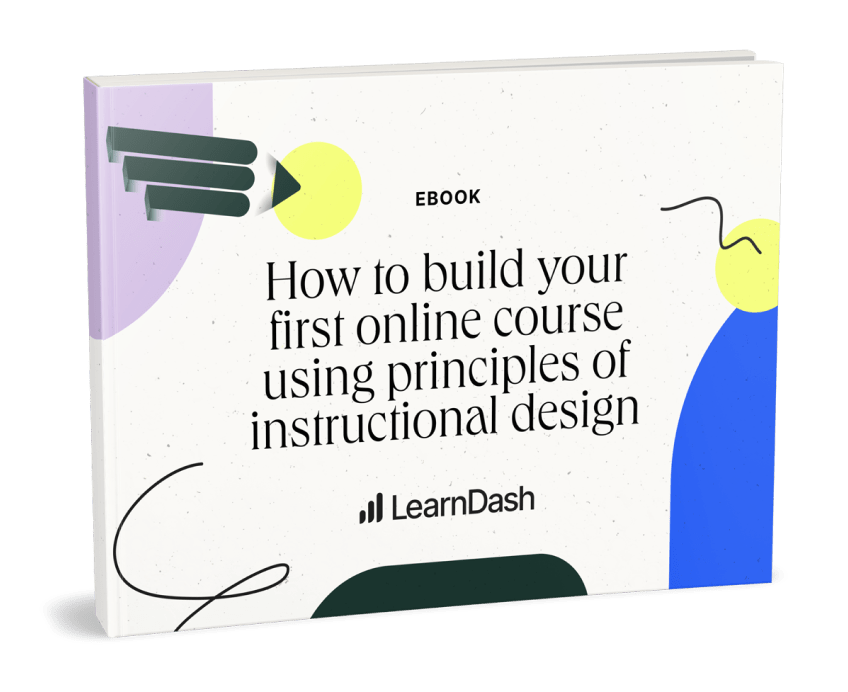
Why Your LMS Needs to Remain User-Focused
Does Your LMS Encourage Learners to Take Control of Their Learning?
As a course creator, you want to do everything in your power to ensure that you are creating a high-quality course that will engage learners and help them accomplish their goals. However, your course is about more than just content. The greatest course material you create can prove unsuccessful if the experience learners have while taking it isn’t positive.
Since we’re talking about learner experience, it will be helpful to cover what the term is intended to encompass. Experiences are subjective, and we all know that it’s impossible to please everybody. Some learners are bound to be dissatisfied if they misunderstood what your course was supposed to accomplish, or if you take a stand on a controversial subject that they disagree with.
However, learner experience can also comprise much more measurable course characteristics that you can control and improve. This include:
- Accessibility. Are learners with disabilities able to access and use your course without hindrance?
- Mobile accessibility. Are learners able to engage with content on their phones or tablets?
- Learner support. Are you providing learners with the resources and responses they need to have a successful course?
- Self-determination. Do your learners have control over how they take your courses?
- Community engagement. Have you fostered a welcoming and supportive learning community?
- Gamification. Does your course include elements that encourage competition and achievement?
Of course, understanding you your instructional design impacts each of these elements can be time consuming—to the point that you might begin to question whether all the hard work is worth it. At a certain point, many instructors start to feel that, as designers of the course, learners should sit back and let them teach the course way they want to teach it.
But the focus on learners really is worthwhile. It leads to better learner outcomes, and higher course enrollment. And in the long run, a course that focuses on learner experience will probably mean less stress for the instructor. Here’s why.
1. Autonomous learners are more invested in their courses.
Young learners need a lot of hand holding when they learn. But as students age into middle school and high school, they develop more interests and want to take more control over their learning. By the time learners reach adulthood, very few want to be told what to do. Instead, they want to take courses that interest them, or else they want to be shown why a course has value for them.
Baked into this development is the need for autonomy. The more a course feels needlessly proscriptive, the more learners feel restricted in their interactions. But the more control a learner has over their experience, the more they buy in to the course itself.
You can offer a more autonomous learning experience by giving learners more control over the order in which they take your courses, allowing them to retake tests after they’ve put in more study time, and allowing them to lead discussion groups in your course forum.
2. The less time your learners spend fighting with your system, the more time they spend learning.
A good learner experience isn’t just about making learners happy. It’s also about removing barriers between them and their learning goals. This is one way in which your LMS is incredibly important. The LMS you choose will not only affect how your courses appear, they will also determine how much control you have over how your courses are presented and organized.
For instance, hosted LMSs like Udemy and Thinkific sell themselves on having a great user experience—for the instructor. They make it easy to quickly set up and launch a course, but they don’t offer a lot of customization tools. Users can use templates to build courses, and that makes things easy, but it also limits their options. And of course, if the instructor decides their learners aren’t getting the right experience, it’s hard for them to take their courses and move them elsewhere.
One of the reasons LearnDash has been such a top choice for online educators is that, as a WordPress plugin, it expands the control educators have over how their material is designed and presented. While the LMS itself is user-friendly enough to be used by non-developers, those who do have the programming experience (or the resources to hire programmers) can put those skills to work creating more custom course designs for their learners.
When that expertise is directed toward creating a user-friendly course, learners can spend more of their time learning, and less of their time struggling with an unfriendly system.
3. A user-focused course is also an accessible one.
Finally, creating a course that provides a good user experience for learners often means creating courses that are more accessible to online users with disabilities or learning limitations. These can be wide-ranging, from blindness or motor control difficulties to hearing impairment or dyslexia. Many elderly users also frequently find themselves barred from participation from online courses because the materials are printed in too small a font, or the quiz buttons are hard to click, or the audio content has no subtitles.
In many cases, fixing accessibility issues is a matter of knowledge. The solutions aren’t hard, they just take a little extra time and are easy for course creators to forget about if they aren’t aware of the issues. For instance, color blind users may have difficulty reading your graphics if the colors you choose are too similar in value. A person with poor motor control will struggle if the clickable space around a button is too narrow. And if your course content is presented in large text blocks, it will be harder for a dyslexic learner than content that is supported by images.
Again, choosing the right LMS can be a huge help on this front. A supportive LMS gives you the control you need to make the best learning environment for your learners—no matter the situation they may be in.
Ultimately, your courses are for your learners. Your LMS should support that.
When choosing an LMS for your course, it’s tempting to only focus on what that LMS can do you for you—and it should be able to do a lot! But you should also closely examine what taking a course on that LMS will feel like for your learners. Does the design help them focus on the material? Do the creators of the platform understand instructional design enough to know what your learners need, or are they mostly selling an entirely different plugin that can be turned into an LMS with a few “hacks?” And in their rush to give educators and course creators what they want, are they failing to offer a system that can serve the end users—the students?
At the end of the day, your learners are the users that matter. If you LMS isn’t helping you deliver the best possible course to them, then it’s not doing its job.

LearnDash Collaborator
@LearnDashLMS







